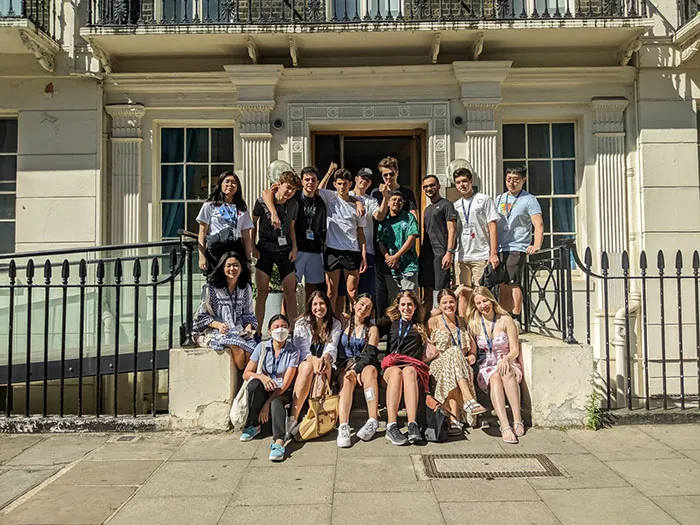Research skills give you the ability to gather relevant information from different sources and analyse it critically in order to develop a comprehensive understanding of a subject. Thus, research skills are fundamental to academic success. But how can you develop important research skills? This article will cover what research skills are, provide examples of research skills, and explain how you can develop them.
What Are Research Skills?
Research skills are a set of abilities that allow individuals to find and gather reliable information and then evaluate the information to find answers to questions.
Good research skills are important in academic settings, as finding and critically evaluating relevant information can help you gain a deeper understanding of a subject.
These skills are also important in professional and personal settings. When you graduate and are working in a professional capacity, you’ll often need to analyse sets of data to identify issues and determine how to solve them.
For example, projects explored in an engineering summer school often require the same level of data analysis and interpretation that researchers use to identify and address design challenges, making it an ideal environment to strengthen such analytical thinking early on.
In personal contexts, you’ll always need to assess relevant information to make an informed decision. Whether you’re deciding on a major purchase, choosing a healthcare provider, or planning to make an investment, you’ll need to evaluate options to ensure better decision outcomes.
Categories of Research Skills
Examples of research skills can categorised. The most common groups are:
Quantitative Skills
Quantitative skills refer to the ability to work with numerical data and perform mathematical and statistical analyses to extract meaningful insights and draw conclusions.
When you have quantitative skills, you’ll be able to apply mathematical concepts and operations in research design and data analysis.
You’ll also be proficient in using statistical methods to analyse data and interpreting numerical data to draw meaningful conclusions.
Analytical Skills
Analytical skills refer to the ability to gather data, evaluate it, and draw sound conclusions. When you have analytical skills, you’ll be able to systematically analyse information to reach a reasonable conclusion.
Analytical skills are important in problem-solving. They help you to break down complex problems into more manageable components, think critically about the information at hand, analyse root causes, and develop effective solutions.
Qualitative Skills
Qualitative skills refer to the ability to collect, analyse, and interpret non-numerical data. When you have qualitative skills, you’ll be proficient in observation, interviewing, and other methods for collecting qualitative research data.
You’ll also be able to analyse non-numerical data, such as documents and images, to identify themes, patterns, and meanings.
Research Skills Examples
The core research skills you need for success in academic, professional, and personal contexts include:
Data Collection
Data is at the centre of every research project, as data is what you assess to find the answers you seek. Thus, research starts with collecting relevant data. This comes under ‘analytical’ research skills.
Depending on the research, there are two broad categories of data you can collect: primary and secondary.
Primary data is generated by the researcher, like data from interviews, observations, or experiments. Secondary data is pre-existing data obtained from different existing databases, like published literature, government reports, etc.
Thus, data collection is more than gathering information from the Internet. Depending on the research, it can require more advanced skills for conducting experiments to generate your own data.
Data Analysis
Data may not mean anything until you analyse it qualitatively or quantitatively (using techniques like Excel or SPSS). For this reason, data analysis is an important research skill.
Researchers need to be able to build hypotheses and test these using appropriate research techniques. This helps to draw meaningful conclusions and gain a comprehensive understanding of research data.
Source Evaluation
This is an example of a qualitative research skill. When doing research on any subject (especially when using the internet), you’ll be amazed at the volume of information you’ll find. A lot is pure garbage that can compromise your research work.
Thus, an important research skill is being able to dig through the garbage to get to the real facts. This is where source evaluation comes in!
Good research skills call for being able to identify biases, assess the authority of the author, and determine the accuracy of information before using it.
Join the Immerse Education 2025 Essay Competition
Follow the instructions to write and submit your best essay for a chance to be awarded a 100% scholarship.

Soft Skills Related to Research
In order to complete great research, you’ll need to develop non-specific transferable skills like time-management and communication. Read on for examples of soft skills needed to research!
Time Management Skills
Have you ever felt that there is not enough time in a day for all that you need to do? When you already have so much to do, adding ‘research’ can be overwhelming.
Good time management skills can help you find the time to do all you need to do, including relevant research work, making it an essential research skill.
Time management allows you to plan and manage your research project effectively. It includes breaking down research tasks into more manageable parts, setting priorities, and allocating time to the different stages of the research.
Communication Skills
Communication is an important aspect of every research project, as it aids in data collection and sharing research findings.
Important communication skills needed in research include active listening and active speaking when interviewing and report writing, data visualisation, and presentation skills for when you come to present your findings.
Attention to Detail
Attention to detail is the ability to achieve thoroughness and accuracy when doing something. It requires focusing on every aspect of the tasks, even small ones.
Anything you miss during your research will affect the quality of your research findings. Thus, the ability to pay close attention to details is an important research skill.
You need attention to detail at every stage of the research process. During data collection, it helps you ensure reliable data.
During analysis, it reduces the risk of error to ensure your results are trustworthy. It also helps you express findings precisely to minimise ambiguity and facilitate understanding.
The same focus on precision applies across disciplines. Medical research, for instance, depends on accurately recorded results and measured outcomes. Engaging with real examples through programmes like a medicine summer school can show students how attention to detail supports credible conclusions.
Note-Taking
Note-taking is exactly what it sounds like—writing down key information during the research process.
Remember that research involves sifting through and taking in a lot of information. It’s impossible to take in all the information and recall it from memory. This is where note-taking comes in!
Note-taking helps you capture key information, making it easier to remember and utilise for the research later. It also involves writing down where to look for important information.
An app like GoodNotes can organise your thoughts for you, helping you focus on research.
Critical Thinking
Critical thinking is the ability to think rationally and synthesise information in a thoughtful way. It is an important skill needed in virtually all stages of the research process.
For example, when collecting data, you need critical thinking to assess the quality and relevance of data. It can help you identify gaps in data to formulate your research question and hypothesis.
It can also help you to identify patterns and make reasonable connections when interpreting research findings.
Problem-Solving Skills
Research often involves addressing specific questions and solving problems. For this reason, problem-solving skills are important skills when conducting research.
Problem-solving skills refer to the ability to identify, analyse, and solve problems effectively.
With problem-solving skills, you’ll be able to assess a situation, consider various solutions, and choose the most appropriate course of action toward finding a solution.
Benefits of Research Skills
Below, we’ve listed a few examples of how research skills help you grow and learn.
Enhances Critical Thinking
Research skills and critical thinking are intertwined. Developing one enhances the other.
Research requires people to question assumptions, evaluate evidence, analyse information, and draw conclusions. These activities require you to think critically about the information at hand. Hence, engaging in research enhances critical thinking.
Develops Problem-Solving Skills
Research helps you acquire a set of critical skills that are directly transferable to problem-solving.
For example, research fosters creative thinking, as it often requires synthesising data from different sources and connecting different concepts. After developing creative thinking via research, you can apply the skill to generate innovative solutions in problem-solving situations.
Helps in Knowledge Acquisition
Engaging in research is a powerful way to acquire knowledge. Research involves exploring new ideas, and this helps you expand your breadth of knowledge.
It also involves applying research methods and methodologies. So, you’ll acquire knowledge about research methods, enhancing your ability to design and conduct studies in your higher education or professional life.
Why Are Research Skills Important?
Strong research skills offer numerous benefits, especially for students’ academic learning and development.
When you develop good research skills, you’ll reap great academic rewards that include:
In-Depth Understanding
Conducting research allows you to delve deep into specific topics, helping you gain a thorough understanding of the subject matter beyond what is covered in standard coursework.
Encouragement of Independent Learning
Research encourages independent learning. When you engage in research, you seek answers independently. You take the initiative to find, retrieve, and evaluate information relevant to your research.
That helps you develop self-directed study habits. You’ll be able to take ownership of your education and actively seek out information for a better understanding of the subject matter.
Intellectual Curiosity Development
Research skills encourage intellectual curiosity and a love of learning, as they’ll make you explore topics you find intriguing or important. Thus, you’ll be more motivated to explore topics beyond the scope of your coursework.
Enhanced Communication Skills
Research helps you build better interpersonal skills as well as report-writing skills.
Research helps you sharpen your communication skills when you interact with research subjects during data collection. Communicating research findings to an audience also helps sharpen your presentation skills or report writing skills.
Assistance in Career Preparation
Many professions find people with good research skills. Whether you’ll pursue a career in academia, business, healthcare, or IT, being able to conduct research will make you a valuable asset.
So, developing research skills prepares you for a successful career when you graduate.
Contribution to Personal Growth
Research also contributes to your personal growth. Know that research projects often come with setbacks, unexpected challenges, and moments of uncertainty. Navigating these difficulties helps you build resilience and confidence.
Acquisition of Time Management Skills
Research projects often come with deadlines. Such research projects force you to set goals, prioritise tasks, and manage your time effectively.
That helps you acquire important time management skills that you can use in other areas of academic life and your professional life when you graduate.
Ways to Improve Research Skills
Improving your research skills involves a combination of learning and practice.
You should consider enrolling in research-related programmes, learning to use data analysis tools, practising summarising and synthesising information from multiple sources, collaborating with more experienced researchers, and more.
If you prefer flexible learning, an online summer school can also provide structured opportunities to practise these skills remotely. Many online programmes offer research-based modules that help students learn how to gather, interpret, and present data effectively while balancing other commitments.
Looking to improve your research skills? Read our 11 ways to improve research skills article.
How Can I Use Research Skills?
At the start of your research journey, you might find it useful to start implementing these three steps in your research. They’re also examples of research skills that should eventually come naturally to the researcher.
Clarify the Objective
Start by articulating the purpose of your research. Identify the specific question you are trying to answer or the problem you are aiming to solve.
Then, determine the scope of your research to help you stay focused and avoid going after irrelevant information.
Cross-Reference Sources
The next step is to search for existing research on the topic. Use academic databases, journals, books, and reputable online sources.
It’s important to compare information from multiple sources, taking note of consensus among studies and any conflicting findings.
Also, check the credibility of each source by looking at the author’s expertise, information recency, and reputation of the publication’s outlet.
Organise the Research
Develop a note-taking system to document key findings as you search for existing research. Create a research outline, then arrange your ideas logically, ensuring that each section aligns with your research objective.
As you progress, be adaptable. Be open to refining your research plan as new understanding evolves.
Enrolling in online research programmes can also help you build strong research skills. These programmes combine subject study with academic research project development to help you hone the skills you need to succeed in higher education.
Immerse Education is a foremost provider of online research programmes.
Acquire Research Skills with Immerse Education
Research skills are essential to academic success. They help you gain an in-depth understanding of subjects, enhance your critical thinking and problem-solving skills, improve your time management skills, and more.
In addition to boosting you academically, they contribute to your personal growth and prepare you for a successful professional career.
Thankfully, you can develop research skills and reap these benefits. There are different ways to improve research skills, including enrolling in research-based programmes. This is why you need Immerse Education!
Immerse Education provides participants aged 13-18 with unparalleled educational experience. All our programmes are designed by tutors from top global universities and help prepare participants for future success.
Our online research programme expertly combines subject study with academic research projects to help you gain subject matter knowledge and the important research skills you need to succeed in higher education. With one-on-one tutoring or group sessions from an expert academic from Oxford or Cambridge University and a flexible delivery mode, the programme is designed for you to succeed. Subsequently, enrolling in our accredited Online Research Programme will award students with 8 UCAS points upon completion.



























